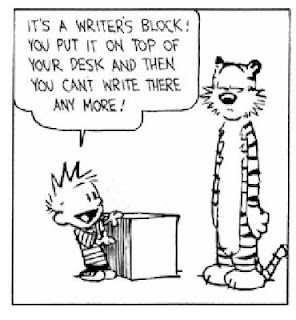
Writing is simple. Keep it simple. It’s communication. It’s personal. It’s real. Or it’s nothing.
1. Read. Read writers you love. Read! Read something. Read a newspaper. But, better, read a book. Books aren’t better. But the act of committing to read, offline, allows our minds and hearts to sink into a settled state of absorption, examination and contemplation.
2. Read your work aloud. You will find mistakes that your eyes don’t catch.
Or, mentally, write to a friend (I visualize an intelligent but ignorant friend—so I don’t have to talk down to them, but I do have to explain and not take any in-group-knowledge for granted. I also visualize them in a café, or wherever we might meet up, over a beer…if I’m reviewing a movie, for example, I wouldn’t recommend it if I didn’t like it. I’d speak personally, making eye contact, I’d speak colloquially, and frankly).
3. “Substitute ‘damn’ every time you’re inclined to write ‘very;’ your editor will delete it and the writing will be just as it should be.” ~ Mark Twain
In other words, don’t use “very” or other superfluous words, much. Don’t use utilize or efficacy when you could say use or effect.
Unless you’re being poetical.
4. “When writing dialogue, avoid using an adverb after he/she said,” he said wisely. IE, you shouldn’t need the adverb to convey the meaning or intent of the dialogue. Via.
“The road to hell is paved with adverbs.” ~ Stephen King
5. “My favorite has always been the Gary Provost lesson on varying sentence length to create rhythm and flow.” Via.
This sentence has five words. Here are five more words. Five-word sentences are fine. But several together become monotonous. Listen to what is happening. The writing is getting boring. The sound of it drones. It’s like a stuck record. The ear demands some variety. Now listen. I vary the sentence length, and I create music. Music. The writing sings. It has a pleasant rhythm, a lilt, a harmony. I use short sentences. And I use sentences of medium length. And sometimes, when I am certain the reader is rested, I will engage him with a sentence of considerable length, a sentence that burns with energy and builds with all the impetus of a crescendo, the roll of the drums, the crash of the cymbals—sounds that say listen to this, it is important.
6. Learn how to use paragraphs. Paragraphs separate ideas, but they can also…
1) create space for the reader’s eye, and…
2) drama by separating out one sentence in the beginning, end, or at a dramatic moment in the middle. Space. Drama.
7. Generally, don’t be general. Don’t be vague (etc). Don’t use etc. Say what you mean. Be succinct. Be detailed. Don’t say “cool.” Say why it was “cool.” Say what was “cool” about it. Don’t use clichés—the reader’s brain will skip over aphorisms and, literally, scientifically-speaking, take nothing in.
8. Don’t be “the wise writer” talking down to the “student-reader.” Forget “you.” Use “I,” or “we.” Speak as equals, because we’re all fundamentally worthwhile. This is not a rule, but a guideline. Speak directly to and with your reader.
9. Don’t waste the reader’s time telling them what you’re going to tell them—just jump in!
10. Get started.
11. The rules of writing in English by George Orwell:
(i) Never use a metaphor, simile, or other figure of speech which you are used to seeing in print.
(ii) Never use a long word where a short one will do.
(iii) If it is possible to cut a word out, always cut it out.
(iv) Never use the passive where you can use the active.
(v) Never use a foreign phrase, a scientific word, or a jargon word if you can think of an everyday English equivalent.
(vi) Break any of these rules sooner than say anything outright barbarous.
~
What is Elephant Academy?
Find your Voice is a 9-week, live, do-it-from-anywhere course with mentorship, community, and guidance from Elephant Journal’s Editor-in-Chief, Waylon Lewis, and our Editors.
This course is about learning how to express oneself genuinely, directly, powerfully. It’s about the fundamental life skill of finding your own voice, finding the power in that voice, and using it to be of benefit.
You’re here to make friends with yourself more fully, share your voice, and in so doing relieve yourself of your lifelong confusions and inspire others to do the same.
And we’ll do that together, through writing (and a little meditation).
Who is this course for?
Do you have a heart? Do you have a voice? Do you have experiences, confusion, wisdom?
Have you long wanted to share your stories but somehow avoided doing so?
Are you ready to take a (wholesome) leap into your own life?
This course is for you.
When’s the course?
September 4th – October 30th, 2024
Weekly training meetings take place on Wednesdays at 10 a.m. MT, and are available for replay if you can’t make it live. There’s an ongoing community forum, a rich curriculum & library of helpful teachings & resources…& it’s fun. It’s meaningful. It’s an unforgettable investment in yourself, and your life’s path.
~
Have questions? Email our Elephant Academy Director, Molly, and she’ll be glad to help you out.
 Share on bsky
Share on bsky


Read 17 comments and reply